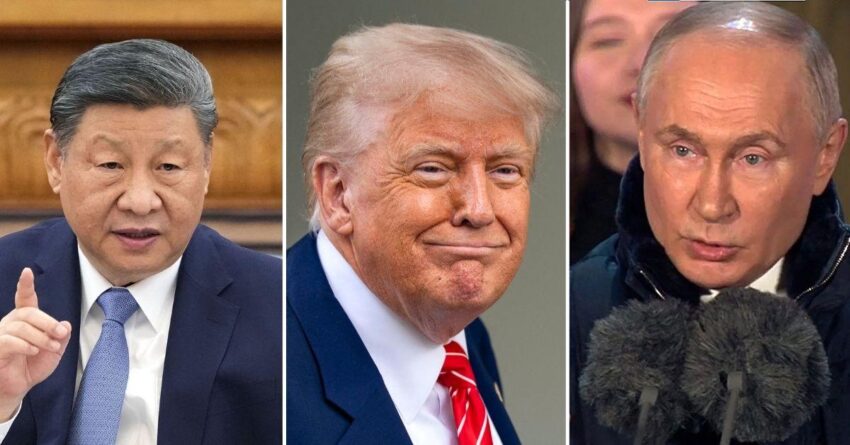The U.S.-China trade talks showed progress toward easing tariffs and stabilizing economic ties but were ultimately overshadowed by a key sticking point — Washington’s demand that Beijing end its purchases of Russian and Iranian oil. Knewz.com has learned that roughly 80% to 90% of the oil Iran exported in 2024 went to China.
China pushes back against the Trump administration’s demands

After two days of talks in Stockholm, China’s Foreign Ministry issued a pointed response to the Donald Trump administration’s warning of a potential 100% tariff if Beijing continues its oil purchases. “China will always ensure its energy supply in ways that serve our national interests. … Coercion and pressuring will not achieve anything. China will firmly defend its sovereignty, security and development interests,” the ministry wrote on X. However, analysts also question whether President Trump would follow through with the threatened 100% tariff. Gabriel Wildau of the consultancy Teneo said that “realizing those threats would derail all the recent progress and probably kill any chance” for Trump and Chinese President Xi Jinping to announce a trade deal if they should meet this fall.
U.S. describes China’s negotiators as ‘tough’

U.S. Treasury Secretary Scott Bessent acknowledged China’s firm stance but said negotiations remain on track. “The Chinese take their sovereignty very seriously,” Bessent told reporters after the talks. He described Beijing’s negotiators as “tough” but expressed optimism, saying, “I believe that we have the makings of a deal.” It is worth noting that Washington’s push to cut Chinese purchases of Russian and Iranian oil is linked to broader U.S. foreign policy goals. By reducing revenue streams for Moscow and Tehran, the United States aims to weaken Russia’s war effort in Ukraine and Iran’s support for militant groups in the Middle East.
China sees both leverage and opportunity in the dispute

Tu Xinquan of the University of International Business and Economics pointed out that China was the only country to retaliate when Trump rolled out sweeping tariffs earlier this year. “If the U.S. is bent on imposing tariffs, China will fight to the end, and this is China’s consistent official stance,” Tu said. Scott Kennedy of the Center for Strategic and International Studies argued that China is unlikely to alter its oil policies given U.S. inconsistencies toward Russia and Iran. He suggested Beijing could even use the issue as a bargaining chip to secure trade concessions. Danny Russel of the Asia Society Policy Institute described China as “the one holding the cards.” Continuing to buy Russian oil, he added, allows Xi to demonstrate solidarity with Russia while reducing costs for China’s economy. “Beijing simply can’t afford to walk away from the oil from Russia and Iran. … It’s too important a strategic energy supply, and Beijing is buying it at fire‑sale prices,” Russel said.
China’s dependence on Russian and Iranian oil

China’s dependence on Russian and Iranian oil is substantial. In fact, the U.S. Energy Information Administration estimates that up to 90% of Iranian oil exports are destined for China, amounting to more than 1 million barrels per day. China also ranks just behind India in Russian oil purchases, importing about 1.3 million barrels daily as of April, according to the Kyiv School of Economics. The issue is also gaining traction in Washington as Senator Lindsey Graham introduced a bill that would authorize tariffs of up to 500% on Russia and any nation that buys its energy products. “The purpose of this legislation is to break the cycle of China — a communist dictatorship — buying oil below market price from Putin’s Russia, which empowers his war machine to kill innocent Ukrainian civilians,” Graham said in a statement.
The post China ignores U.S. demand to stop buying oil from Russia and Iran appeared first on Knewz.
Click this link for the original source of this article.
Author: Samyarup Chowdhury
This content is courtesy of, and owned and copyrighted by, https://knewz.com and its author. This content is made available by use of the public RSS feed offered by the host site and is used for educational purposes only. If you are the author or represent the host site and would like this content removed now and in the future, please contact USSANews.com using the email address in the Contact page found in the website menu.







